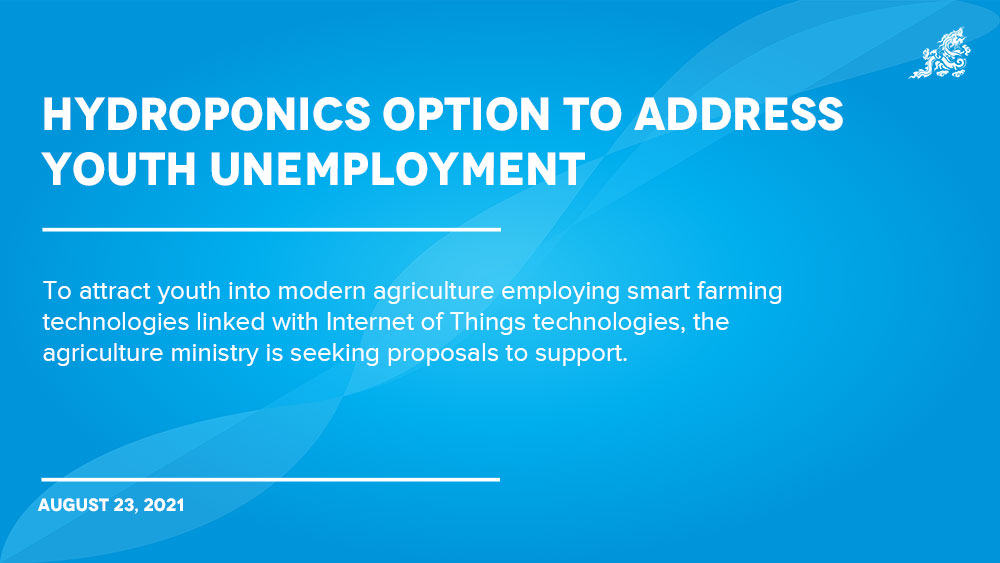Yangyel Lhaden
To attract youth into modern agriculture employing smart farming technologies linked with Internet of Things technologies, the agriculture ministry is seeking proposals to support.
The ministry’s Agriculture Production Division (APD) has invited proposals from interested youth entrepreneurs wishing to take up hydroponics farming and has received five proposals to date.
Deputy Chief Horticulture Officer with APD, Tsheltrim said that they targeted youth as rising youth unemployment rate is a concern with many young overseas returnees were laid off and interventions to engage them in a business-as-usual mode might be futile. The division received budget to upscale and promote hydroponics.”
Fundamental prerequisites for the projects require 20 percent equity from individuals and land either owned or leased will have to be ensured. The proposals will be screened for authenticity, seriousness, and areas for fund support.
He said proponents would present their proposal at the end of this month and if the project proposals exceed the fund available the proposal would be further screened at the departmental level. “The amount ceiling will depend on the proposals and areas which we can support.”
Individuals after their project proposal approval will receive materials and equipment to set up hydroponics system. Individuals will also be consistently monitored and trained by agriculture research and development centre researchers.
Tsheltrim said they will also use experiences of the existing private hydroponics for training youth.
Unlike traditional farming, hydroponics is not labour intensive and all a farmer needs to is monitor the pH, temperature, and nutrient level in the water with instruments. The system can grow plants and vegetables much faster than on the conventional setting in soil with less water and in a small space.
Tsheltrim said researchers are confident to promote hydroponics after several trials. “Officials are capable of delivering technical support on hydroponic system development and customising systems to best suit our location.”
He said nutrient formulation was one of the challenges of hydroponics and several trials on crops were conducted to formulate our own nutrient composition. “Only nutrient formulas tested and tried will be provided to youth.”
Tsheltrim said the project’s long-term goal was to promote gender-friendly farming options which could produce more from a small area, reduce drudgery, and reduce pest and disease incidences.
He said hydroponics was an option for future farming in urban and peri-urban areas where land and water were a limitation.
Edited by Tshering Palden


